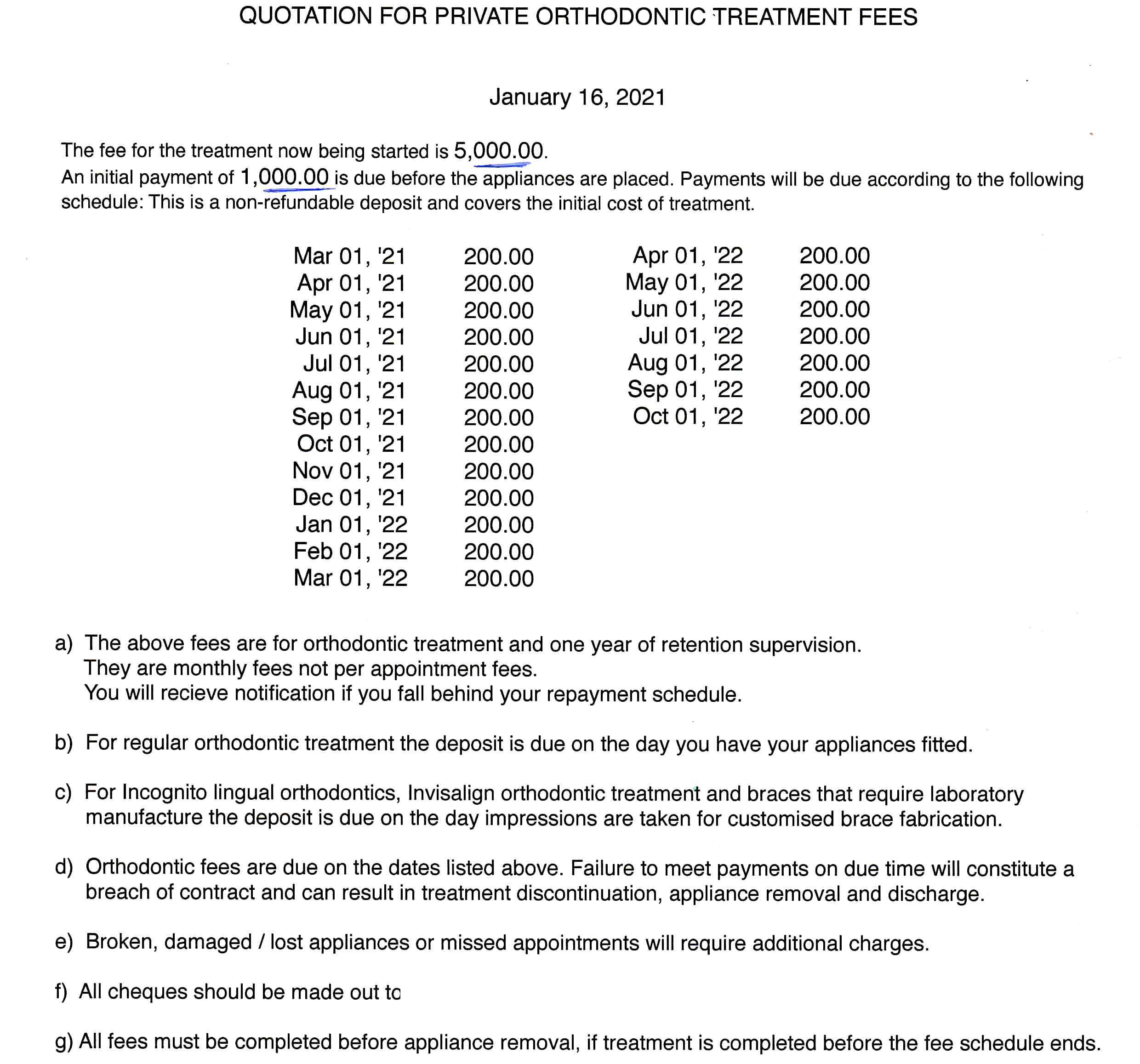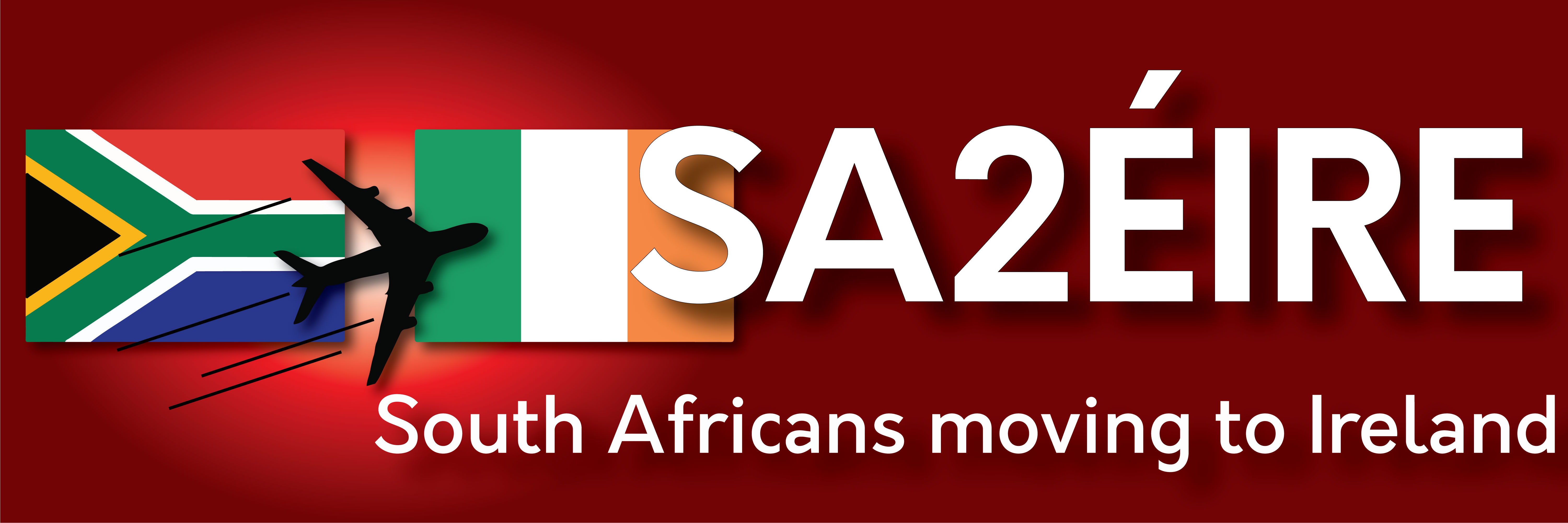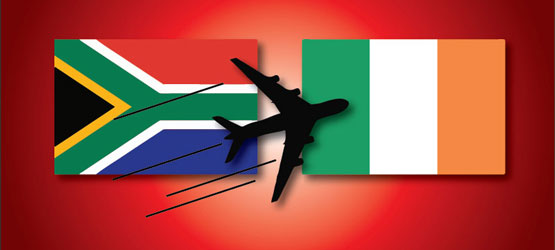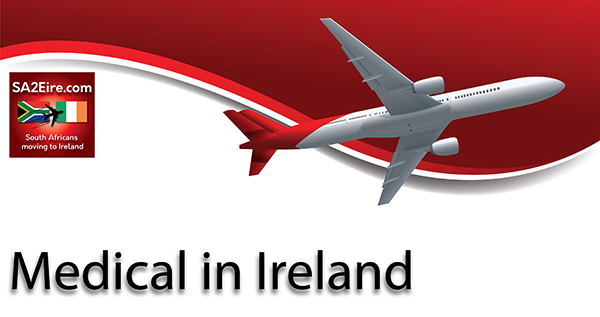In Ireland, as opposed to some other countries, your entitlement to make use of the medical service, is not only affected by your Pay Related Social Insurance (or as it is known here PRSI), but rather by your residency status or the means you have available.
Right to that access medical is not denied, however how much you pay towards (or in full) medical will be based on your passport/ residency stamp AND habitual residence.
Access to free or subsidised medical is not an automatic right for any passport holder, it is also closely connected to Habitual Residence- can you actually prove you live here as opposed to being here on holiday?
Your nationality in its own does not prevent or guarantee you are eligible for the medical care available, but there are specific rules for people from the EU/EEA, Switzerland, and the UK.
Generally, people who come to live, work, study or retire in Ireland, regardless of passport will qualify for semi-subsidised statemedical care, as they are regarded as resident and will most likely meet the criteria as set out in the requirements for Habitual residence. There are exceptions where certain passports need Private Medical as part of their residency requirements
Comparing SA healthcare to Irish healthcare
Coming from SA it is often a question on what the health care is like in Ireland. The two systems are vastly different.
SA as we know, government facilities are mostly old, run-down and have massive queues for the most part. Private is funded by the hard earned wealth of the people paying their medical aids every month, so big hotel-like hospitals and care is fast and expensive.
Ireland has a very small gap between the two systems in that private hospitals are few and far between and mostly it is goverment care thats available, private hospitals may still have queues for certain ailments, or it might be quick, and the government hospitals are clean and modern and well maintained. Overall the investment in both systems is on good well trained staff and good equipment to diagnose and treat people. The cost of the care comes from taxation in the government sector and as such they aren't governed by who has more money, but rather who most urgently needs care. Every step into the system is triaged so that they can assertain the urgency or nature of the issue. Almost every step starts with a GP visit who will advise where you go and what you do. If critically urgent you can attend Accident and Emergency (A&E) where it will be triaged there, or if its broken limbs or cuts and the like, attend an Injury unit.
For many people with the SA private medical aid coming to Ireland they find it a relief that they do not have to pay the hefty prices of the medical aids, but still expect the same level of urgent care regardless of the ailment, and for them this can be frustrating.They do not adjust well to the queing system.
For many people who have experienced only SA government care this is a welcomed change.A clean good place with helpful staff and good patient care is refreshing.
For many people who are open to understanding and navigating the way medical works in Ireland, they soon realise that the system works fairly and well once you become accustomed to the fact.... this is not SA, this is Ireland.
You may want to look into Private Medical Insurance, it may be a requirement for some residency stamps to have insurance, but the word is an indicator, its insurance not medical aid... you make a claim, its not there to help to pay, it works much the same way as car insurance, there for the 'in case' moments.
You may choose to like or not like the Irish way, but it is what it is, it is neither fully state funded like the UK for example, it is not down to whether you can afford it or not, it is just different to what you know and you learn with time how to adjust to it. Read more below to see how it works.
It is HIGHLY recommended you get your medical reports from SA and bring them with you. Getting signed up to private medical and sometimes with GP's and specialist care they might want to see those old reports particualrly if you have pre-exisiting conditions
Establishing ordinary residency
When you move to Ireland, regardless of your passport, you will have to be able to prove that you have either been living in Ireland for a year OR intend to live here for at least a year. This is regardless of your nationality.
To establish that a person is ordinarily resident the HSE may require:
- Proof of property purchase or rental, including evidence that the property in question is the person's principal residence
- Evidence of transfer of funds, bank accounts, pensions etc.
- A residence permit or visa
- A work permit or visa, statements from employers etc
- In some instances, the signing of an affidavit (a sworn written statement) by the applicant
Non-EU's Please note: When a Non-EU satisfies the conditions for Habitual Residency, it does not mean their dependents who are here will automatically qualify themselves. Each person has to qualify in their own right.
We often ask people the following:
Regardless of your passport, if you are flying from SA to Ireland, and the worst happens and you have a medical emergency on the plane, and the plane has to land and you end up in a Gov hospital in that country below you over Africa - what will you pay? And what will the hospital be like?
Now, you have landed in Ireland, and in that first week, regardless of passport, you fall and break a leg, if you cannot prove you are resident in Ireland, it's highly likely you will pay non-EU full rates in an Irish hospital. (You have no PPS, you have no bills, you have nothing to prove you actually live here yet). Hospital rates in this case can be EUR1000 a night- can you afford this?
As a result it might be wise to consider a month or so of Travel Insurance, Extend your SA medical aid if it does that option ... either way read more on the travel related medical HERE
Entitlement to health services
If you hold a UK Passport
The rules for citizens from the UK continue to be the same as the rules for citizens from the EU for a transition period. The transition period started after the UK left the EU on 31 January 2020 and will last until 31 December 2020.
Under the common travel area UK citizens who live in, work in, or visit Ireland have the same right to access healthcare as citizens who are resident in Ireland.
If you are visiting from the UK, you can bring proof of your Medical insurance card.
Irish nationals who have been living outside Ireland
If you hold an Irish Passport, whether you have lived here before and are returning, or coming for the first time, the ordinarily resident rule (being able to prove that you have been or intend to live in Ireland for at least a year)
If you are not in this situation and you have been living and working in another EU/EEA country or Switzerland, your entitlement to health services when you return is decided under the rules applying to EU nationals.
If you have been abroad on a short-term contract, you continue to be regarded as ordinarily resident.
If you have been resident abroad for a period of up to three years but your Local Health Office of the HSE is satisfied that you did not establish an entitlement to health services in any other country, the HSE should regard you as ordinarily resident in Ireland if you require treatment when you return to Ireland. This is so that people who emigrate from Ireland do not lose their health service eligibility on residence grounds before they have a chance to establish eligibility elsewhere. This provision does not apply where someone is covered by EU regulations in another country and, in particular, it would not entitle a person temporarily resident in another EU country to have the HSE extend the European Health Insurance Card beyond the normal period.
Visitors from the EU/EEA
If you have an entitlement to healthcare in another EU/EEA member State or Switzerland, you may have an entitlement to healthcare in Ireland under EU rules.
If you are visiting Ireland temporarily you can apply for a European Health Insurance Card which covers medical care if you become ill or have an accident. You should bring your European Health Insurance Card with you when you are travelling to Ireland.
Visitors from countries that are not in the EU, EEA, Switzerland or UK or you are a student
If you are here for a period that is shorter than 1 year, you are regarded as a visitor and you do not have any entitlement to free or subsidised health services. You may wish to consider taking out travel insurance.
If you are a dependant of someone who is not a EU, EEA or Swiss national, the same rules about ordinary residence apply to you. In other words, the fact that someone who is not a EU, EEA, or Swiss national has established eligibility for health services here does not mean that their non-resident dependants are also entitled to health services in Ireland.
There are certain instances where people who are visiting Ireland qualify for some free or partly subsidized healthcare. You can read more about that Here.
Eligibility for health services
Healthcare in Ireland is NOT free- its semi-subsidised by the State, so some things may be free, others will not be
There are two types of eligibility for people who are ordinarily resident:
- Full eligibility for medical card holders*
- Limited eligibility for people who don't have a medical card
*In the case of medical cards, it is important to note that this is a means tested benefit. (What is the Means Test).
This is important to note, as the Naturalization application form asks you to list any Welfare assistance that you have received. Naturalization Application Forms
Medical Card holders
A medical card entitles you to the following:
- Free GP Services
- Prescribed drugs and medicine. (There is a charge per prescribed item)
- Public hospital services
- Dental, optical and aural services
- Maternity and Infant care services
- Community care
Non-Medical Card holders
If you do not have a medical card, you are entitled to free public hospital services but you may have to pay in-patient and out-patient hospital charges.
Charges for emergency and out-patient treatment:
If you attend an emergency department without being referred there by a GP, there is a charge of €100.
There is no charge if you are referred by a GP (bring your referral letter with you).
This does not apply to:
- Medical card holders
- People who are admitted to hospital as an in-patient as a result of attending the casualty department (you will then be subject to in-patient charges)
- People receiving treatment for prescribed infectious diseases
- Children up to 6 weeks of age
- Children, in respect of the following diseases and disabilities: “mental handicap, mental illness, phenylketonuria, cystic fibrosis, spina bifida, hydrocephalus, haemophilia and cerebral palsy”
- Children referred for treatment from child health clinics and school health examinations
- People who are entitled to hospital services because of EU Regulations
- Women receiving maternity services
- People with Hepatitis C who have a Health amendment act card
- Participants in the Redress Scheme for women Resident in certain institutions
The charge applies to the first visit in relation to an illness or accident. If you must return for further visits to an out-patient clinic in relation to the same illness or accident, you should not have to pay the charge again.
You can be referred by your family doctor to the out-patients department of a public hospital for specialist assessment by a consultant or his or her team or for diagnostic assessments (for example, x-rays, laboratory tests, physiotherapy). If you attend this service as a public patient, you will not have to pay for this service. If you wish to attend a consultant in a private capacity, you must pay their fee.
The following services are subsidized: Drugs payment scheme, Maternity and infant care scheme, community and social care and GP services if you have a GP card
IMPORTANT TO NOTE: We cannot say with certainty that applying for any Benefit that is Means Tested will or will not affect your naturalisation application as an Irish Citizen. Each individual application is assessed on its own merit and the decision is made at the discretion of the person assessing the application on that day. It is required that Benefits are listed on the Naturalization Form where they look at your self sustainability in the previous years of residence. See more on this HERE

All children under the age of 6 qualify for a GP under 6 card.
--> As per budget 2022 this has been amended to include children up to the age of 7
This is NOT means tested and covers:
- free GP visits
- assessments at age 2 and 5 years
- GP home visits
- out-of-hours urgent GP care
- care for children with asthma
Medication costs and hospital charges are not covered.
There are certain general health services that are available to people on the basis of their need or health status rather than on whether they have a medical card or not.
Long Term Illness Scheme
The Long-Term Illness Scheme allows people with certain conditions, who are not already medical card holders, to obtain the medicines and medical and surgical appliances they require for the treatment of their condition, without charge. No means test is involved.
The conditions included in this scheme are:
- Mental disability
- Mental illness (up to age 16 only)
- Diabetes insipidus
- Diabetes mellitus
- Haemophilia
- Cerebral palsy
- Phenylketonuria
- Epilepsy
- Cystic fibrosis
- Multiple sclerosis
- Spina bifida
- Muscular dystrophy
- Hydrocephalus
- Parkinsonism
- Acute leukaemia
- Conditions arising from the use of Thalidomide
More HERE
Drug-Payment Scheme
Under the Drugs Payment Scheme (DPS) an individual or family will pay no more than €100 each calendar month for:
- approved prescribed drugs and medicines
- rental costs for a continuous positive airway pressure (CPAP) machine
- rental costs for oxygen
If you don’t have a medical card and you pay more than €100 a month for any of these, you should apply.
Anyone who is ‘ordinarily resident’ in the Republic of Ireland can apply. ‘Ordinarily resident’ means that you are living here and intend to live here for at least one year.
There is no means test for a DPS card.
More HERE
Child Health Services
Ireland’s child health program is similar to international child health program models - covering child health reviews, vaccinations, and screening (the timing of contacts differs from country to country). The service is free to all children in Ireland and is enshrined in law. Its universal nature facilitates greater acceptability for families as there is equal access for all children.
The totality of the program is provided from antenatal stage to the first year in second level school by several health services across a range of settings, from homes to hospitals:
- Hospitals and GPs provide antenatal and post-natal care (including two checks for the baby at two and six weeks) as part of the Maternity & Infant Scheme.
- GPs deliver the primary Immunisation program (up to 13 months) and monitor growth at two and five years as part of the GP Under 6 contract.There is free GP care to all children under the age of six years.
- Public Health Nurses and Community Doctors deliver child health screening, developmental surveillance, key health messages and support to parents in addition to vaccinations to children from birth to first year in second level school (school vaccinations).
- The service is currently delivered through the Best Health for Children/Best Health for Children Revisited model.
As the community-based screening and surveillance service is generally the first service to see the baby in the home environment, it plays a critical role in linking with other related child services to ensure the needs of the child and family are met.
Private health insurance (The basics)
Health insurance is used to pay for private care in hospital or from health professionals in hospitals or in their practices. The arrangements vary from one company to another but most companies have agreements with hospitals to pay the hospital directly. In general, for outpatient costs you pay the health professional and then claim back from the health insurance company. You should check with your own company as to their procedures.
Minimum level of cover
At present, companies that are offering cover for in-patient hospital services must offer a minimum level of benefits. They must provide a minimum level of cover in respect of:
- Day care/in-patient treatment
- Hospital out-patient treatment
- Maternity benefits
- Convalescence
- Psychiatric treatment and substance abuse
An individual or family, having already served both the requisite waiting periods relevant to their age when first taking out private health insurance and any waiting period for a pre-existing condition may switch from one insurer to another, and if such an occurance takes place within 13 weeks, those waiting periods will not have to be served again. Therefore, persons can normally move from one insurer to another without loss of cover.
Do Waiting periods apply?
Yes, they might. You may not be refused cover, but your cover may be restricted with waiting different waiting periods applied to existing conditions or other conditions such as maternity.
During this period, accident and Injury is covered.
Maternity in Ireland (The basics)
Every women, regardless of her nationality, employment status or funds in her bank account, who is pregnant and ordinarily resident in Ireland is entitled to maternity care under the Maternity and Infant Scheme. Ordinarily resident means you are living here, or you intend to remain living here for at least one year. This means that if you can show that you flown here to come and live for in Ireland for more than a year, you qualify for the maternity care scheme. It does not matter if you are 14 DPO or 8 months along.
Under the maternity care scheme, your antenatal care is divided and shared between the GP and the hospital Obstetrician. You are also covered for 2 post-natal visits with your family GP.
On your first pregnancy the GP provides an initial examination, if possible before 12 weeks, and a further 5 examinations during the pregnancy, which are alternated with visits to the maternity unit/hospital. The schedule of visits may be changed by your GP and/or hospital obstetrician, depending on your individual situation. For subsequent pregnancies you will have an initial examination and a further 6 examinations.
In the case of the mother having diabetes or hypertension, you may have an additional 5 visits with the GP.
Your first port of call is to see your GP. The GP, may have a midwife/nurse as part of the practice, and in this case, you will see them and not the actual GP for what is referred to as your GP consultations. The GP (or the midwife/nurse, which from this point onward will be included in the reference to the GP practice) will confirm the pregnancy and then apply for you under the Maternity and Infant care scheme for your costs to be covered under the scheme.
Cant find a GP taking on new patients
There is a shortage of Doctors in Ireland (hence it is a critical skill position and huge drives to bring in GP's) so finding a practice, particularly in small towns, is harder. Go in to see them, tell them you are a cash paying client and not on medical cards (they prefer not to take medical cards). Going in to see them and not calling or emailing is better.
If you have been to 3 and still have no joy, try this:
Email or post a cover letter with the names and addresses of 3 GPs who refused you along with your details to This email address is being protected from spambots. You need JavaScript enabled to view it. or Client Reg Unit PO Box 11745 Dublin 11
Dentistry in Ireland
Go get your and your family's teeth checked a few months before leaving South Africa, use up the last of your Medical savings on it.
Have whatever work needs doing in advance.
Except perhaps Orthodontics, many people have reported that Orthodontists do not like taking on "second hand" work and will start over with all orthdontic work. To get an idea of dentistry costs see this...


UPDATE:
Important links:
 #MapMyMove- Our coaching Services - Confused or lost and need some direction, book a session with us to help untangle the confusion and work out your route of immigration
#MapMyMove- Our coaching Services - Confused or lost and need some direction, book a session with us to help untangle the confusion and work out your route of immigration
 The Habitual Residence Condition
The Habitual Residence Condition
 Operations Guidelines to Habitual Residence Approval
Operations Guidelines to Habitual Residence Approval
 Maternity and Infant care scheme
Maternity and Infant care scheme
 GP services are only free with a GP card
GP services are only free with a GP card
 Blogs from our SA community regarding emergency and other medical care they received in Ireland
Blogs from our SA community regarding emergency and other medical care they received in Ireland
 Resources for this topic- Medical related - Loads of links to anything medical
Resources for this topic- Medical related - Loads of links to anything medical



